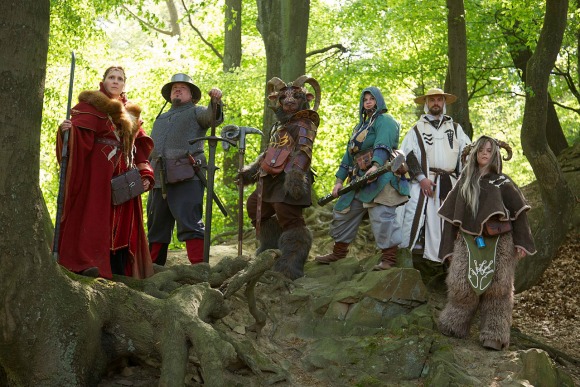
Japanese gamers weigh in on what prime party member number makes or breaks their RPG experience.
Arguably one of the most appealing features of RPGs (role playing games) is the ability to add more characters (or users, if we’re talking internet RPGs) to aide you on your adventure as you travel to different places in the game.
The fewer characters or players your party has, the easier it is to manage, but then again, there’s a certain strength in numbers, and keeping too few members around could result in taking a ton of damage each time you’re up against a powerful foe. That’s why information service site My Navi decided to poll RPG players about what they think is the perfect party number. Is your RPG logic on the same page as Japanese gamers, or will their answers give you something to think about next time you play?
First up, tied for fifth place at the bottom of the list, were parties of five or six, each taking home 3.9 percent of the vote.
While there weren’t a lot of comments against having a larger party, some users felt like having five or more members made it more difficult to delegate tasks to every character, or use each character effectively.
Third place: Three (14.9 percent)
They say that three’s a crowd, but that isn’t necessarily the case when it comes to RPGs, according to 44 of the respondents surveyed. Reasons given for choosing three people in their party included:
“This number offers the best balance.”
“It’s definitely three. I mean, you can only carry around three Pokemon at a time.”
“Dragon Quest definitely gives off that party of three vibe.”
“I’ve had three in most of the RPGs I’ve played. The roles are split nicely that way.”
Second place: Two (15.8 percent)
This answer appeared to be popular with those wanting more of a challenge out of their RPG experience, or those playing games online with other users, instead of game characters, in their party.
“It’s easier to communicate with just two.”
“In the beginning having two is fairly common.”
“You feel more accomplished when you beat the game with just two.”
That said, there was certainly a lot of backlash against trying to tackle an RPG with only two members in your party.
“Just having two would make me uncomfortable.”
“With what kind of RPG would you put just two in your party? I certainly haven’t played any like that.”
“When you have just two, it’s more like just switching between the hero and the heroine during battles.”
And finally…
First place: Four (52.4 percent)
Despite how four usually isn’t anyone’s favorite number due to its pronunciation, “shi”, the same as the kanji character for “death”, it certainly blew the rest of the responses away, gaining over half of the votes of all the gamers that were surveyed. Apparently old superstitions take a backseat when you’ve got a dragon or other nasty boss to slay.
“Even if you have three and all of them are at their full recovery or strength, it doesn’t feel like they offer much compared to going it alone, so that’s why I prefer having four.”
“If the game is interesting, then any number is fine, but I feel like I’ve had four in most of the games I’ve played. Isn’t two too few?”
“Three might be the best, but having four gives you more leeway.”
“I hate parties of three. If one person dies then you can’t recover and as soon as the tides turn it gets boring.”
One thing that many of the users could agree on, however, is that the perfect party number often changes depending on the RPG series, how old the RPG is, and if it’s a DRPG (diceless RPG) or not.
Naturally there was also the occasional absurd comment along the way like, “No way! It’s gotta be 11 people or nothing!” not to mention one particular user, who took the time to make a jab at SMAP’s recent break-up announcement with the response, “According to Takuya Kimura, five is best!”
For any RPGers out there, how did these answers compare with your own? Let us know what number you think makes the perfect party below!
Source: My Game News Flash
Feature/top image: Wikipedia/RalfHuels (photographer), Anja Arenz, Chris Kunz, Dossmo, Niamh, Paolo Tratzky, Svenja Schoenmackers